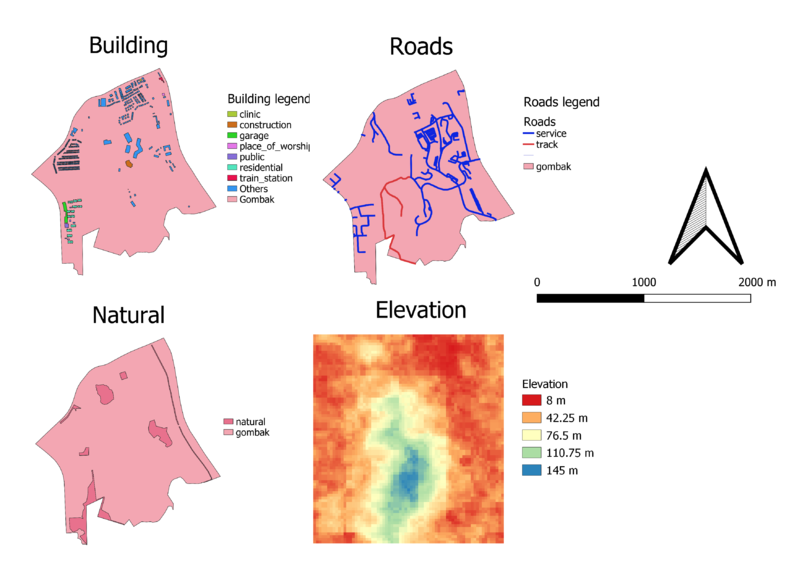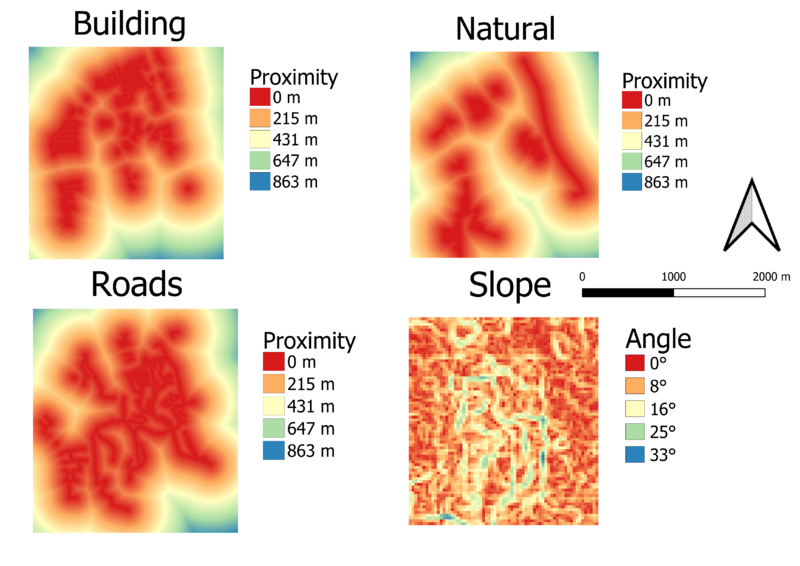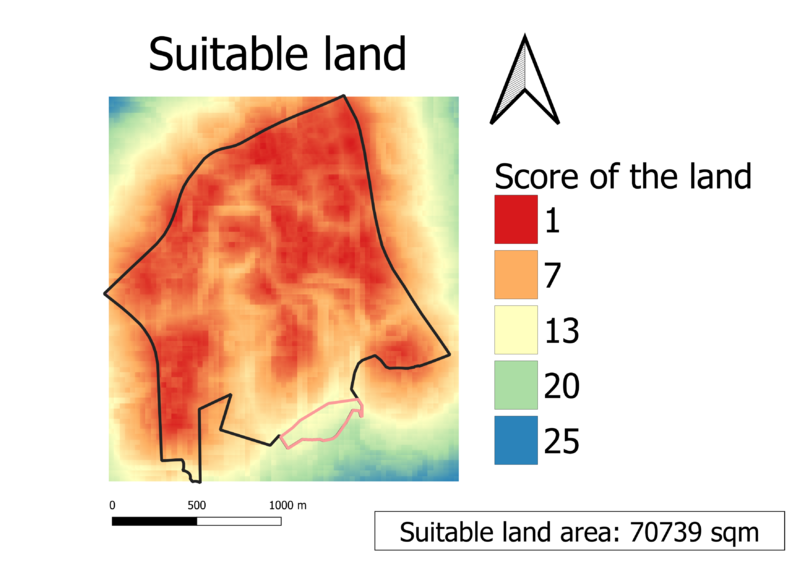Difference between revisions of "SMT201 AY2019-20G1 Ex2 Lim Shen Jie"
| Line 10: | Line 10: | ||
[[File:LSJ Raster four view.png|800px|thumb|center|Raster view of the study areas]] | [[File:LSJ Raster four view.png|800px|thumb|center|Raster view of the study areas]] | ||
==== Description ==== | ==== Description ==== | ||
| − | + | 1. Buildings - Classified proximity by color. Numbers are in metres. <br/> | |
| + | 2. Natural - Classified proximity by color. Numbers are in metres.<br/> | ||
| + | 3. Roads - Classified proximity by color. Numbers are in metres.<br/> | ||
| + | 4. Elevation - Classified proximity by color. Numbers are in metres.<br/> | ||
== Part 3: Raster view showing the criterion scores of the study areas == | == Part 3: Raster view showing the criterion scores of the study areas == | ||
[[File:Minmax.png|800px|thumb|center|Raster view showing the criterion scores of the study areas]] | [[File:Minmax.png|800px|thumb|center|Raster view showing the criterion scores of the study areas]] | ||
| − | + | ==== Description ==== | |
| + | 1. Buildings - Classified proximity by color. Numbers are standardized using Min-max method. <br/> | ||
| + | 2. Natural - Classified proximity by color. Numbers are standardized using Min-max method.<br/> | ||
| + | 3. Roads - Classified proximity by color. Numbers are standardized using Min-max method.<br/> | ||
| + | 4. Elevation - Classified proximity by color. Numbers are standardized using Min-max method.<br/> | ||
== Part 4: AHP tables == | == Part 4: AHP tables == | ||
[[File:LSJ AHP.JPG|800px|thumb|center|Pair-wise comparison]] | [[File:LSJ AHP.JPG|800px|thumb|center|Pair-wise comparison]] | ||
[[File:LSJ AHP column totals.JPG|800px|thumb|center|Resulting weightage]] | [[File:LSJ AHP column totals.JPG|800px|thumb|center|Resulting weightage]] | ||
==== Description ==== | ==== Description ==== | ||
| − | + | 1. Buildings - Classified proximity by color. Numbers are standardized using Min-max method. <br/> | |
| + | 2. Natural - Classified proximity by color. Numbers are standardized using Min-max method.<br/> | ||
| + | 3. Roads - Classified proximity by color. Numbers are standardized using Min-max method.<br/> | ||
| + | 4. Elevation - Classified proximity by color. Numbers are standardized using Min-max method.<br/> | ||
== Part 5: Suitable land == | == Part 5: Suitable land == | ||
| Line 27: | Line 37: | ||
== Sources == | == Sources == | ||
| − | 1. [https://data.gov.sg/dataset/master-plan-2014-subzone-boundary-no-sea Master Plan 2014 Subzone (No Sea)] | + | 1. [https://data.gov.sg/dataset/master-plan-2014-subzone-boundary-no-sea Master Plan 2014 Subzone (No Sea)] <br/> |
| − | 2. [https://www.bbbike.org/Singapore/ BBBike@Singapore] | + | 2. [https://www.bbbike.org/Singapore/ BBBike@Singapore]<br/> |
| − | 3. [https://search.earthdata.nasa.gov/search?m=-7.175!25.59375!1!1!0!0%2C2 ASTER Global Digital Elevation Model (GDEM) dataset] | + | 3. [https://search.earthdata.nasa.gov/search?m=-7.175!25.59375!1!1!0!0%2C2 ASTER Global Digital Elevation Model (GDEM) dataset]<br/> |
Revision as of 14:18, 9 November 2019
Contents
Part 1: Standard view of study areas
Description
1. Buildings - Classified buildings by color into clinic, construction, garage, place of worship, public, residential, train station, and others.
2. Natural - Classified natural as one single color.
3. Roads - Classified roads into service and track. Any other type of roads were excluded from the study.
4. Elevation - Classified the elevation into colors, representing different heights
Part 2: Raster view of the study areas
Description
1. Buildings - Classified proximity by color. Numbers are in metres.
2. Natural - Classified proximity by color. Numbers are in metres.
3. Roads - Classified proximity by color. Numbers are in metres.
4. Elevation - Classified proximity by color. Numbers are in metres.
Part 3: Raster view showing the criterion scores of the study areas
Description
1. Buildings - Classified proximity by color. Numbers are standardized using Min-max method.
2. Natural - Classified proximity by color. Numbers are standardized using Min-max method.
3. Roads - Classified proximity by color. Numbers are standardized using Min-max method.
4. Elevation - Classified proximity by color. Numbers are standardized using Min-max method.
Part 4: AHP tables
Description
1. Buildings - Classified proximity by color. Numbers are standardized using Min-max method.
2. Natural - Classified proximity by color. Numbers are standardized using Min-max method.
3. Roads - Classified proximity by color. Numbers are standardized using Min-max method.
4. Elevation - Classified proximity by color. Numbers are standardized using Min-max method.
Part 5: Suitable land
Discussion
Sources
1. Master Plan 2014 Subzone (No Sea)
2. BBBike@Singapore
3. ASTER Global Digital Elevation Model (GDEM) dataset




